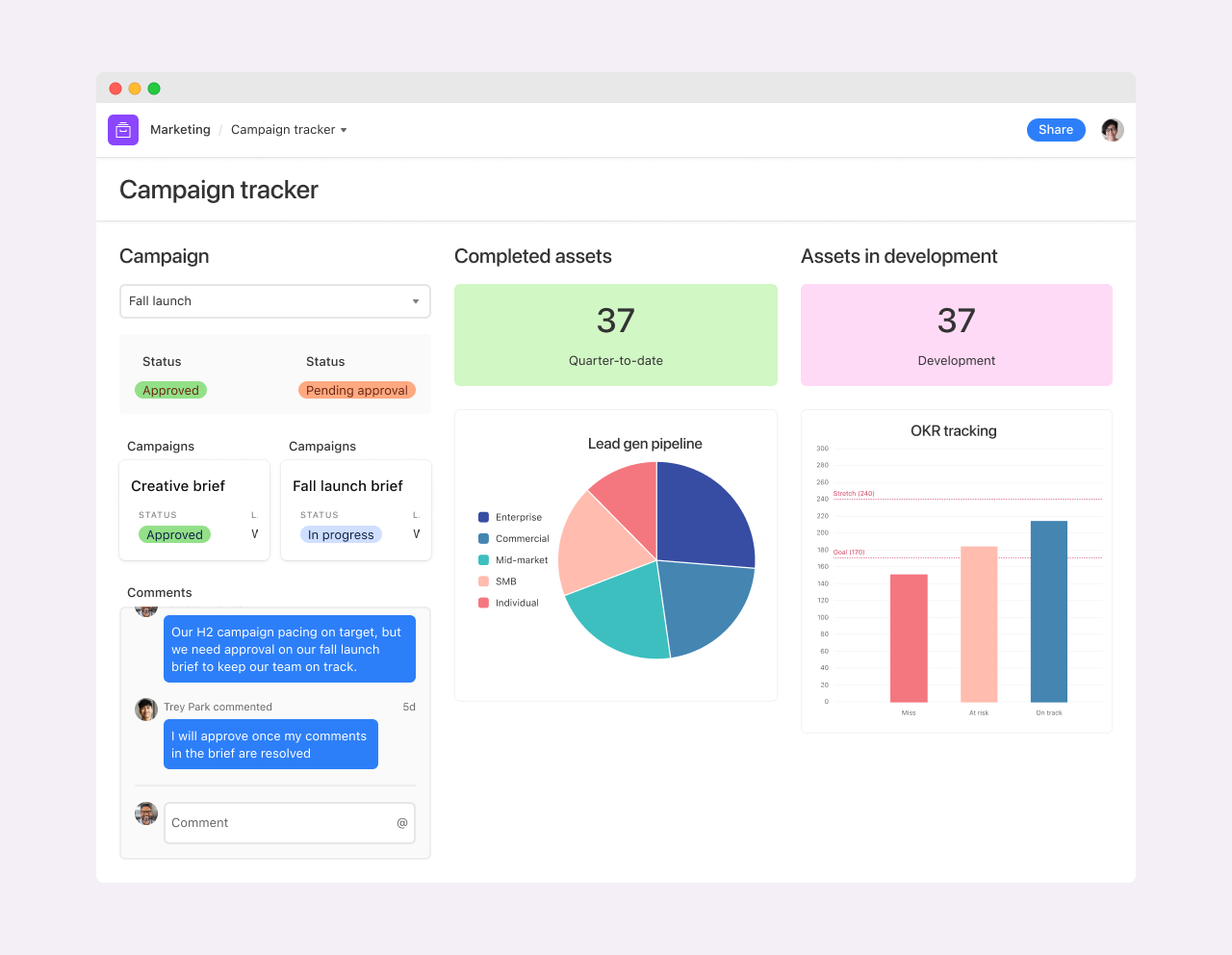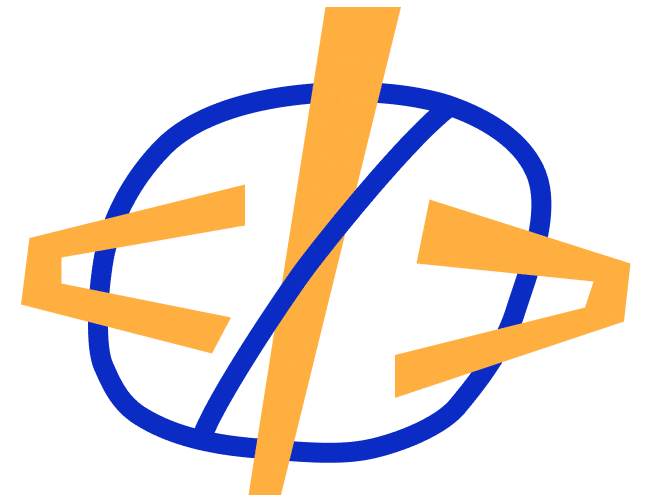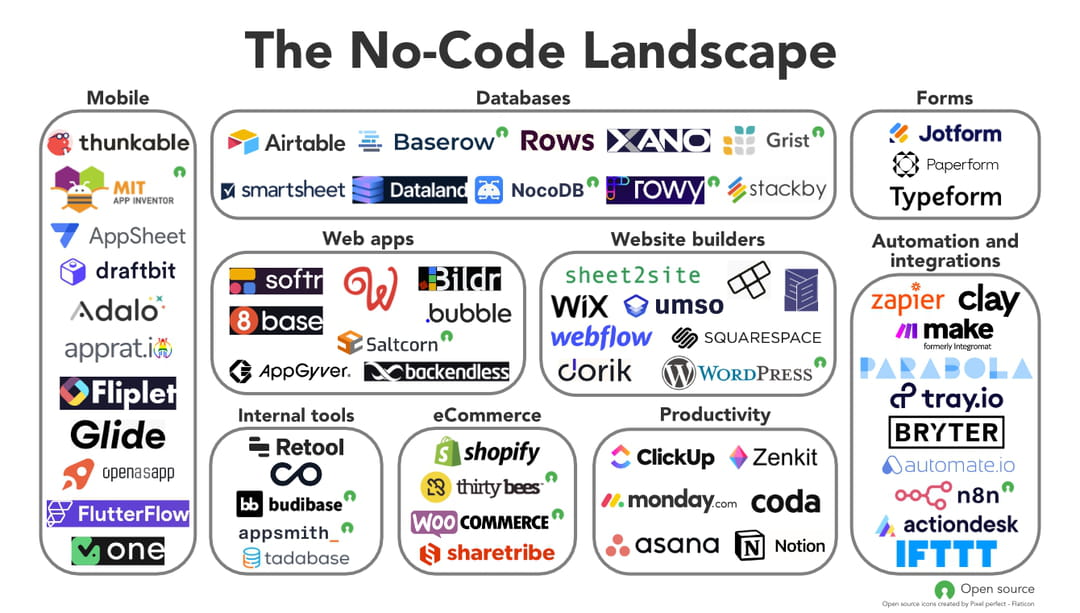Airtable is transforming the way companies approach no code. By combining the flexibility of a database with the intuitiveness of a spreadsheet, this platform allows for extensive customization without requiring programming skills. Companies can thus quickly and efficiently create tailored solutions, fostering innovation and collaboration within teams. With innovative features and a user-friendly interface, Airtable propels organizations to new heights, enabling them to focus on what matters: creating, innovating, and standing out in the market. With Airtable, the no code revolution is within reach, offering fertile ground for the emergence of bold ideas and impactful projects.
Table of Contents
ToggleAirtable and the No Code Ecosystem

Airtable is reshaping the No Code landscape by offering a flexible and intuitive platform that enables users, even without development skills, to modernize their business processes. With its relational database structure, Airtable allows for efficient project management, marketing campaigns, and beyond.
The magic of Airtable lies in its ability to integrate various tools and applications, creating a harmonious ecosystem for teams. Advanced customization features allow users to design dashboards tailored to their specific needs, optimizing collaboration within teams.
Key Features:
- User-friendly interface that facilitates adoption by all team members.
- Integration options with platforms like Zapier, allowing for workflow automation.
- Ability to visualize data in tables, calendars, Kanban, and more.
By integrating elements of design thinking, Airtable encourages agile practices within organizations. This enables teams to adapt quickly to market changes and remain competitive. Community support and available educational resources also facilitate rapid skill acquisition on the platform.
The future of business innovation relies on flexible tools like Airtable, which demonstrates that the future of work can be both intuitive and powerful. Adopting such No Code solutions not only saves time but also unleashes team creativity.
The Emergence of No Code Solutions
Airtable stands out as a key player in the No Code landscape, transforming how companies manage projects and optimize their processes. With an intuitive interface and powerful features, Airtable enables anyone, whether tech-savvy or not, to create customized applications without needing programming skills.
The No Code ecosystem has experienced a true revolution in recent years. Tools like Airtable facilitate access and operational efficiency for teams, enabling solutions that were once reserved for developers. Thus, even without technical training, professionals can now manage complex databases, organize workflows, and integrate various tools into a single platform.
The advantages of Airtable include:
- Flexibility: Create tables and views tailored to your specific needs.
- Enhanced collaboration: Teams can work together in real-time, regardless of their location.
- Automation: Integration with other tools to automate repetitive tasks.
- User-friendly interface: No coding knowledge required to start using Airtable.
Airtable not only democratizes access to management tools but also encourages innovation by allowing users to explore new possibilities for creation. Companies can quickly adapt their processes, respond to changing market needs, and remain competitive.
Thus, all stakeholders within a company can participate in digital transformation without being hindered by technical barriers. With the rise of No Code technologies, Airtable positions itself as a key partner in achieving companies’ strategic objectives.
Airtable as a Pioneer
Airtable positions itself as a major player in the No Code universe, enabling companies to innovate without requiring advanced technical skills. Its intuitive interface, which combines spreadsheet functionalities with databases, offers unmatched flexibility for creating customized applications.
With Airtable, users can easily manage projects, track performance, and automate processes. This perfectly aligns with the current trend to make application development accessible to everyone, regardless of coding skills.
Airtable fits into a thriving No Code ecosystem, responding to various needs:
- Real-time collaboration between teams
- Creation of tailored workflows without writing a line of code
- Integrations with other tools such as Zapier, Slack, and G Suite
As a pioneer of No Code, Airtable paves the way for a new era of innovation. It is not just developers who can leverage technology, but also marketing managers, project leaders, and entrepreneurs who wish to turn their ideas into reality.
The majority of Airtable users identify several key advantages:
- A steep learning curve due to a user-friendly interface
- The ability to customize applications based on specific projects
- An extensible ecosystem of applications that fosters continuous innovation
By facilitating data and project management, Airtable washes away the barriers that typically stand in front of companies wishing to leverage new technologies. The agility that this tool offers is essential for any organization keen to remain competitive in an ever-changing market.
- Ease of use
- User-friendly interface facilitating application creation
- Database flexibility
- Customizable templates for various needs
- Real-time collaboration
- Unified team around projects
- Task automation
- Simplified workflows to save time
- Extensive integrations
- Connectivity with other digital tools
- Data analysis
- Reporting tools for informed decisions
- Scalability
- Easy adaptation to growing business needs
- Accessibility
- Use on various devices while being mobile
- Dynamic community
- Sharing of resources and innovative solutions
The Innovative Features of Airtable

Airtable stands out as a true catalyst for innovation for companies by rethinking the codes of no code. With its flexible platform, users can easily create customized databases, manage projects, and automate workflows without requiring programming skills.
The innovative features of Airtable enable effective collaboration within teams. With various templates tailored to different sectors, everyone can get started quickly, whether in content management, sales tracking, or event planning.
One of Airtable’s strengths lies in its ability to integrate automations through scripts and predefined actions. Users can set up automatic notifications, synchronize data with other tools, or generate reports, all without writing a single line of code.
Customizable views, such as Kanban, calendar, or gallery views, allow for adapting the interface to the organization and to each user’s preferences. This ensures a smooth and intuitive working experience, making task management more enjoyable and productive.
In terms of data analysis, Airtable makes performance tracking easier with its sorting, filtering, and grouping functions. Users can transform raw data into actionable and relevant insights, thus optimizing their decision-making process.
Finally, the active community around Airtable encourages the sharing of best practices and tips, allowing professionals to stay at the forefront of technological innovations. Resources such as forums, tutorials, and webinars enhance the user experience, making continuous learning easy and accessible.
Customizable and Flexible Tables
Airtable stands out in the no code tools market due to its features that promote innovation and efficiency. By allowing everyone, from beginners to experts, to create customized applications, Airtable asserts itself as an essential asset for companies.
The customizable tables of Airtable allow users to design databases according to their specific needs. Whether it’s for project management, sales tracking, or coordinating events, each table can be tailored with various fields, whether text, dates, attachments, or multiple selections.
The flexibility of these tables lies in the ability to organize information intuitively. In just a few clicks, team members can:
- Edit the database structure according to project needs.
- Use filters to quickly extract relevant information.
- Create different views (kanban, calendar, grid) to visualize data from different angles.
This user-centered approach fosters collaboration within teams. Thanks to commenting and notification features, each member stays informed of updates and can interact in real-time, enhancing productivity and agility.
Moreover, Airtable’s integrations with third-party tools, such as Zapier or Slack, allow for the automation of repetitive processes, freeing up time to focus on what really matters: innovation. By leveraging these capabilities, companies can drive their results in no time.
Automations and Integrations Without Coding
Airtable transcends the limits of no code with innovative features that enable businesses to drive their innovation. Its ease of use and powerful integration capabilities provide an environment conducive to creativity and efficiency.
Airtable’s automations allow users to set up personalized workflows without needing to write a single line of code. This frees up valuable time, allowing focus on high-value tasks.
Among the automation features are:
- Automatic notifications to stay informed of important updates.
- Automatic movements of data between different tables.
- Automatic record creation based on defined triggers.
Airtable’s integrations with popular applications and services further enrich the user experience. It is possible to link Airtable with tools such as:
- Slack for instant updates within teams.
- Zapier to automate workflows between different applications.
- G Suite for smooth and collaborative document management.
This no code-centered approach fosters innovation within companies, as it lowers the entry barrier for non-technical users. Everyone can now design customized solutions tailored to their specific business needs.
Airtable stands as an essential tool in the landscape of digital marketing and project management, offering unprecedented flexibility to adapt to the rapid changes of modern enterprises. Say goodbye to complexity and hello to efficiency!
The Impact of Airtable on Businesses
Modern companies require custom applications to stay competitive and agile. Now, you can describe what you want in words, and Airtable Cobuilder will transform your idea into an app—in moments.
— Airtable (@airtable) July 25, 2024
Imagine it, write it, let AI do the rest. Let us know below what you create! 👇
🔗… pic.twitter.com/YPFIizNz7O
Airtable positions itself as a key player in the world of no code, offering a flexible platform that facilitates data management. By allowing users to easily create customized databases, Airtable helps businesses quickly adapt to market changes.
Companies have noticed significant impacts through the integration of Airtable into their daily processes. Here are some areas where Airtable has revolutionized business work:
- Improved collaboration: Teams can easily share databases, manage projects, and track progress in real-time.
- Automation of repetitive tasks: Thanks to its user-friendly interface, users can easily set up automations, allowing them to focus on higher-value tasks.
- Customization of workflows: Airtable allows the creation of workflows tailored to each company’s specific needs, enhancing operational efficiency.
- Data analysis: Companies can visualize their data in multiple ways (tables, calendars, kanbans), thus facilitating quick and informed decision-making.
Moreover, the integration of Airtable with other tools like Zapier or Slack enables companies to synchronize their tasks and streamline communication between teams. This type of interconnectivity reinforces project coherence and optimizes human resources.
By adopting Airtable, companies demonstrate an increased ability to innovate, adapt to technological advancements, and tangibly improve their productivity. It is a catalyst for innovation that transforms how they work, eliminating the constraints associated with the complexity of traditional tools.
In summary, Airtable represents a true opportunity for companies wishing to leverage the potential of no code, engage in digital transformation, and create a dynamic and efficient work environment.
Accelerating Decision-Making Processes
Airtable revolutionizes the landscape of no code tools by offering a flexible and accessible solution that allows businesses to innovate quickly. Thanks to its power and ease of use, this tool becomes an indispensable ally for teams looking to optimize their internal processes.
The impact of Airtable on businesses is felt on multiple levels. On one hand, it centralizes project, data, and interaction management within a single platform. On the other hand, it improves collaboration between teams by fostering smooth and efficient communication, while minimizing errors related to information exchange.
One of Airtable’s main advantages is the acceleration of decision-making processes. Thanks to its ability to gather all types of data, decision-makers have a real-time overview. This instant access to information helps make informed decisions more quickly. Here are some key features contributing to this efficiency:
- Customizable dashboards: Visualize your data through different formats to better understand performance at a glance.
- Task automation: Create automations that lighten the workload and reduce repetitive manual processes.
- Real-time collaboration: Share information and work simultaneously with your team, no matter where they are.
By integrating Airtable into their daily operations, companies discover countless opportunities to innovate and differentiate themselves in the market. The customization of the tool allows it to be adapted to the specific needs of each sector, thus enhancing its relevance and usage.
In the face of the rapid evolution of the digital world, companies must equip themselves with powerful tools. By using Airtable, they do not just keep up with trends; they redefine how they organize and manage their projects, thus fostering a culture of continuous innovation within their organization.
Fostering Collaboration Within Teams
Airtable has truly transformed the no code landscape by offering an intuitive and powerful solution for companies wishing to innovate. Thanks to its flexibility, each team can create and manage its own databases without needing programming knowledge. This relieves the IT department and encourages innovation throughout the organization.
Companies adopting Airtable see a notable improvement in their productivity. By uniting project management, CRM, and task tracking functionalities in a single tool, Airtable eliminates numerous data silos. Every team member can access necessary information in real time, thereby improving decision-making.
Fostering collaboration within teams has become essential in a modern professional environment. Airtable facilitates this collaboration through:
- Customizable views (tables, calendars, maps) tailored to the needs of each project.
- The ability to share databases with various stakeholders, whether internal or external.
- Real-time comments, allowing for fluid and instant communication regarding ongoing projects.
- Integration with tools that teams already use, such as Slack and Zapier, thus enhancing their workflow.
This collaborative environment is not limited to internal teams. Airtable also promotes working with external partners, clients, or suppliers, making the entire process more transparent. Companies that integrate Airtable into their daily activities are therefore better positioned to respond quickly to market changes and client needs.
By fully leveraging the capabilities of Airtable, companies position themselves as innovative leaders, capable of adapting and growing in a constantly evolving world. The combination of simple creation tools and a user-friendly interface allows everyone to contribute to innovation, regardless of their technical level.
“`











